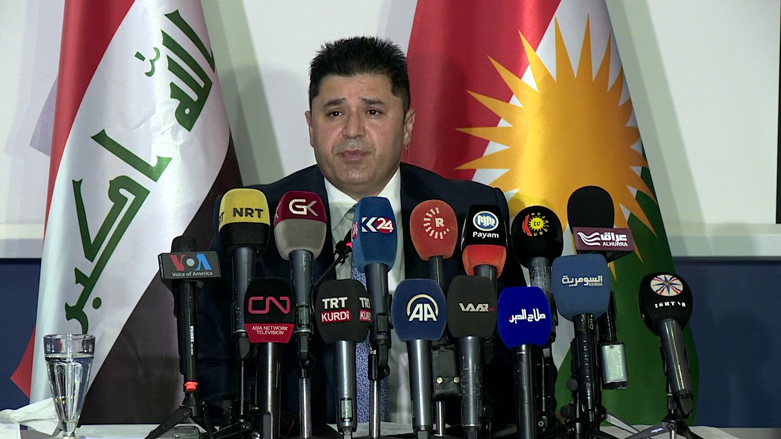KRG will only send thousands of IS detainees to Baghdad 'under UN supervision'

ERBIL, Kurdistan Region (Kurdistan 24) – The Kurdistan Regional Government (KRG) is ready to hand over Islamic State (IS) detainees to Baghdad under the supervision of the UN, a Kurdish official said on Tuesday.
“There should be guarantees from Baghdad that the prisoners will be fairly tried in court and not subjected to sectarian punishment by the Federal Government of Iraq,” Dindar Zebari, KRG Coordinator for International Advocacy, told Kurdistan 24 following a press conference in Erbil.
He mentioned that Erbil would not hand over detained jihadists from disputed areas, notably from those towns where Kurds make up the majority of the population.
Zebari added that the KRG had already discussed a handover process for detainees with the UN and the KRG’s Minister of Labor and Social Affairs.
“We want the transfer to be done in a fair and transparent manner. The KRG should not later be accused of handing over Sunnis to the Shia government in Baghdad,” he argued.
He revealed that from 2014 to 2016, Kurdish forces captured more than 2,600 IS members and suspects.
In Dec. 2017, Human Rights Watch (HRW) stated that over 350 detainees held by the Kurdish forces in Kirkuk were “feared to have been forcibly disappeared.”
Zebari said the detainees had not disappeared but instead were brought to the Kurdistan Region.
“The names of all these prisoners were submitted to the UN and the International Committee of the Red Cross, but they were not informed about the families of 350 people,” Zebari said.
He noted that all of those affected in the transfer had admitted having been members of or affiliated with the jihadist group.
He did not provide details on arrested IS foreign fighters but claimed some had already been repatriated back to their countries, including a Japanese journalist who was detained in 2016 on suspicion of having ties to IS.
In Kirkuk Province, especially in the south and the west, roughly 1,000 IS members surrendered to Peshmerga and Kurdish security forces, most notably during the Hawija operation in Sep. 2017. Those detainees were transferred to the Kurdistan Region.
The Kurdish official explained that in 2014, 115 IS members were arrested in Kirkuk, an additional 183 in 2015, 83 in 2016, and 19 members in last year.
The Peshmerga forces have been one of the most effective ground troops in defeating IS.
Zebari also criticized the UN for not paying enough attention to the situation in the town of Khurmatu in southern Kirkuk as hundreds of homes, shops, and properties were burnt or destroyed by Shia militia groups following the Oct. 16, 2017, attack by Iraqi forces.
“Their reports do not match what happened in the town. Their follow-up was insufficient,” Zebari said.
He added that the current decision by Baghdad to investigate violations and abuses in Khurmatu was a step in the right direction, but he called on the investigative committee to include independent members to ensure the process is transparent.
Zebari mentioned that following the takeover of the disputed territories by Iraqi forces on Oct. 16, the number of reported violations and abuses committed in those areas greatly increased. The violations were allegedly carried out not only by Shia militias but also Iraqi army fighters.
In Sinjar (Shingal), it is no longer allowed to study in the Kurdish language in local schools. Thousands of students have fled to the province of Duhok, calling on the government to put an end to the abuses of human rights and freedoms.
Editing by Nadia Riva
